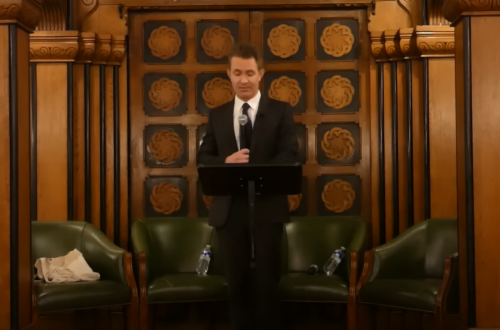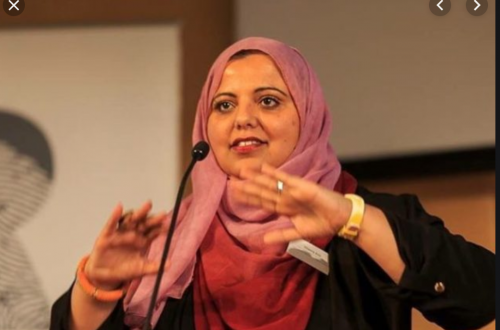“I’m not a postmodernist,” says Judith. “And I don’t believe everything is just perceptions. There’s truth and there are lies.”
Judith, the heroine of Fields of Exile, made aliya some years ago but has returned to Canada to study for a Masters in Social Work. She is an optimistic liberal who is perturbed by racist remarks she hears in Israel, wishes to promote dialogue between the country’s different communities, and is no great fan of Ariel Sharon. (The novel is set at the time of the Second Intifada.) Here she introduces herself to her fellow students:
“My area of interest, like Cindy’s, is teens. But what I’ve been involved with were discussion groups between Jewish and Arab adolescents in Israel. I was part of a group called Friends-of- Peace. They have a branch in Toronto. We ran meetings twice a month — with discussions and activities — to foster mutual understanding and tolerance between the two groups. To try to build bridges for the future between these two communities, instead of just conflict and hatred.” She pauses. Everybody’s looking at her and listening attentively.
Gradually she becomes aware of the charged complexities of campus politics: ideological clashes, status anxieties, and jockeying for position. Soon she is invited by Suzy, an enthusiastic young lecturer, to join SWAC, the Social Work anti-oppression committee – this opportunity greatly appeals to Judith’s strong sense of social justice. But she begins to feel alarmed and alienated by the inconsistent ways in which such ideas are discussed. In class, a student’s condemnation of Israel’s treatment of the Palestinians remains unchallenged, even though she refers to the ‘Jewish lobby’. Meanwhile, another student, who criticizes the oppression of women in Afghanistan, is warned against the dangers of ethnocentrism.
Sensitive and self-conscious Judith becomes increasingly dismayed by the way in which, in a culture which supposedly condemns all forms of oppression and discrimination, antisemitism is tolerated and indeed promoted. Here is her frustrated response to an exhibition of photographs which has been put on by SLAP – Students for a Liberated Palestine:
She knows these photographs are true. She has seen others like them — there’s nothing here she hasn’t seen before, or that she and her friends haven’t been outraged over, and demonstrated against, dozens of times. Yet these photographs are not true. They are not true because they tell just half of the story and provide no context. There is nothing here, not one single picture, about what the Palestinians do to Israelis: about the incessant suicide bombings, the rockets fired from Gaza on young families, the Israeli children stabbed to death in their beds at night. Someone ignorant visiting this exhibit would get the impression that the Israeli army, sheerly out of naked aggression, completely unprovoked, goes around killing Palestinians. Which isn’t true.
Fields of Exile is, of course, a political novel with a purpose which is in part polemical. But it doesn’t always play out in a predictable way, and I remained unsure for some time exactly how her relationships with Suzy (her mentor) and Bobby (her impatiently conservative Canadian boyfriend, a bit of a John Thornton figure perhaps) would develop. Another question which, for me, remained unanswered was how far the heroine’s view of diaspora life – I had to look up the word galut – was being endorsed by the novel. Are we meant to agree more with Bobby, or with Judith, in this exchange?
“Oh, yeah? Well, this Jew’s home” — he points to his chest — “is right here in Canada. This is where I was born and raised. This is where I belong.”
“I know,” she says, kindly, even sadly. “But that’s exactly the problem. That’s what’s so sick about galut. After even one or two generations of living somewhere, Jews start believing that’s their home. When it’s not. It’s just where they happen to be.
I read Fields of Exile in a day – it’s a real page-turner, and I recommend it to anyone with an interest in the boycott issue or in contemporary antisemitism more generally. You can read more about the novel here, and Marc’s review has just been published over on the Times of Israel.


